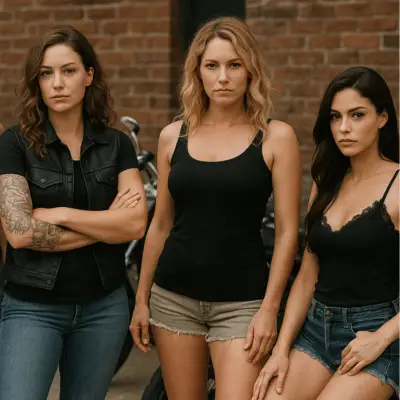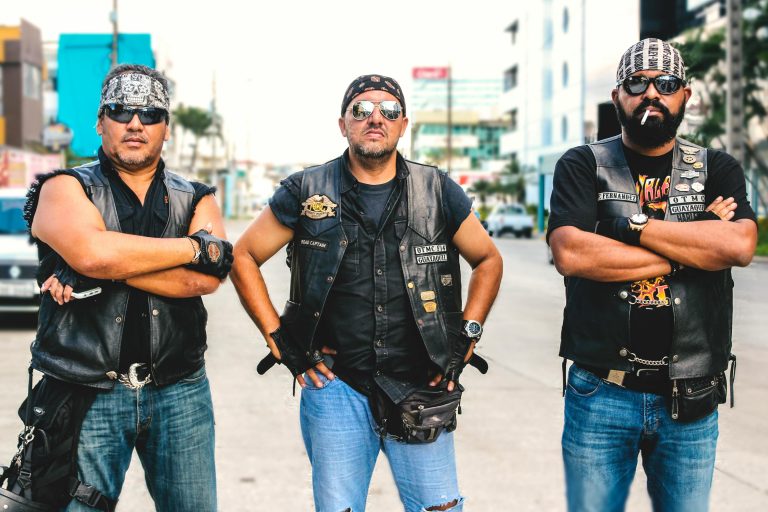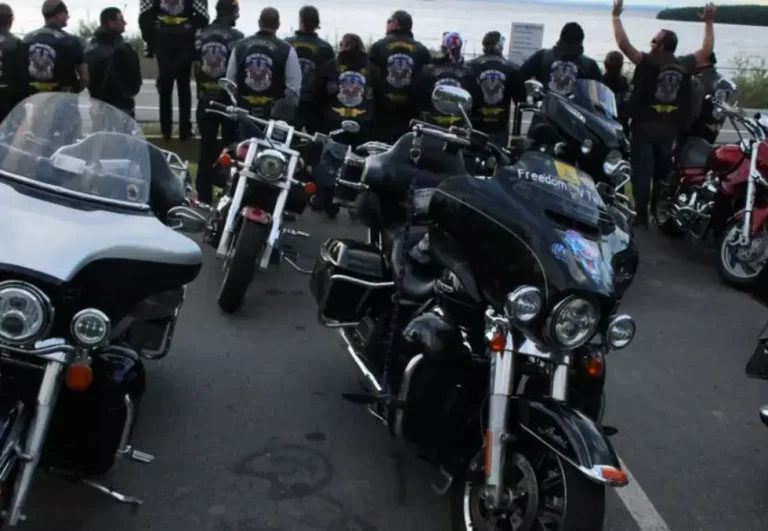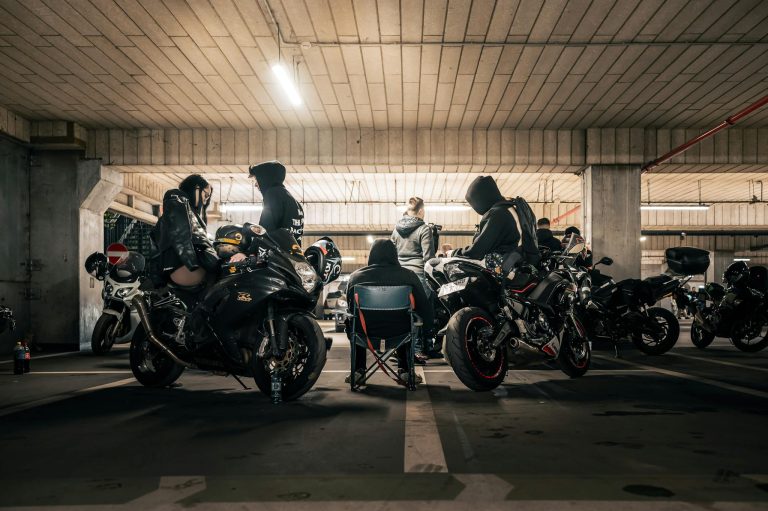What If History Were Lost?
There are names we know today, deeds, and actions of club leaders that we only know because the history was preserved. Imagine a world where history is gone, and all we have is The Biker Rider Movie. What happens to the history of clubs of people like Johnny Davis, Taco, and Sonny Barger? What if their stories were lost?
Now, some people might say, well, it’s just the past, there are books, there are movies, but honestly, how many of those projects can we honestly say are 100% accurate, and we as bikers live in the moment and miss the most important question of all: what becomes of the culture?
It’s no secret that one of the main challenges facing outlaw motorcycle clubs right now is attracting younger members, what happens when the old members die out and we haven’t preserved and taught the history – what kind of a culture will the next generation build if they have none of the knowledge of old school rules, values, and the stories that the great motorcycle culture is build on. This is why it’s so important to put work into preserving the legacy of outlaw motorcycle clubs.
The Origins Of Outlaw Motorcycle Clubs
It’s often stated that motorcycle clubs emerged in the aftermath of World War 2, but even this basic fact is inaccurate. The oldest outlaw motorcycle club is The Outlaws MC, founded in 1935 in McCook, Illinois, four years before the war even started. Riding and racing clubs date back further still. Did you know the first motorcycle club in England wasn’t in England, it was actually formed in Swansea in 1924. Swansea Motor Club had its first event, which was a hill climb in Gower. While a racing club is the oldest club in England, it is actually The British Motorcycle Racing Club, formed in 1909.
Back to the outlaw motorcycle clubs, after 1935, other clubs formed. The reason World War II is attributed to the beginning of the culture is that there was a huge surge starting with the Hells Angels MC in 1948. When returning veterans sought camaraderie, adrenaline, and a sense of belonging. Motorcycles offered both freedom and brotherhood, two ideals deeply valued by those who had experienced the rigors of combat and the challenges of reintegration into civilian life. Also, remember that Hollister happened in 1947, along with the backlash so clubs at the time were claiming this new identity of the 1%er.
Early clubs formed around shared rides, weekend gatherings, and the pursuit of independence from societal expectations.
As decades passed, these groups evolved beyond casual riding circles. They developed into tightly bonded organizations with structures, codes, and traditions that reinforced loyalty and solidarity. What began as social groups quickly transformed into cultural institutions, with each club carving out its own identity while contributing to a broader motorcycle community.
From the 1950s onward, MCs became cultural symbols in their own right, often misunderstood but undeniably influential. Their evolution reflects not just the changing landscape of motorcycling but the broader currents of American history, from post-war freedom movements to countercultural expressions of identity.
Cultural Significance
At their core, outlaw motorcycle clubs are about brotherhood. Members share not only the road, but also rituals, stories, and responsibilities that bind them together for life. The bonds forged within MCs transcend casual friendship; they embody loyalty, honor, and mutual protection. These values are passed down through traditions, runs, and events that preserve the fabric of each club’s unique culture.
Symbols play a central role in MC heritage. Patches, kuttes (vests), and insignia are not mere decorations; they are living emblems of belonging. Every stitch carries weight, representing history, territory, and identity. These visual markers create a sense of unity within clubs, while distinguishing them in the wider world.
Beyond attire and rituals, music, events, and storytelling have always amplified the cultural resonance of MCs. From blues and rock to outlaw country, the soundtrack of the road has shaped the lifestyle. Rallies, runs, and anniversary gatherings are more than parties; they are cultural institutions that reaffirm traditions year after year. Storytelling, whether passed around campfires or captured in zines, magazines, and now digital archives, keeps the legends alive.
Together, these elements form a rich cultural tapestry. MCs are not simply riding groups; they are living traditions, deeply embedded in modern folklore and countercultural history.
Challenges To Preserving History
Despite their significance, outlaw motorcycle clubs face serious challenges in safeguarding their heritage. Media portrayals often reduce MCs to one-dimensional stereotypes of crime and rebellion, overshadowing the deep bonds, charitable works, and cultural contributions that define the majority of clubs. These misrepresentations distort public understanding and threaten to erase authentic narratives.
Aging membership is another pressing concern. Many of the original storytellers, founders, and tradition-bearers are now reaching the end of their lives. Without careful preservation, their memories and experiences risk fading into obscurity.
Legal and social pressures also complicate preservation. Shifts in law enforcement focus, as well as social stigmas attached to patches or symbols, create an environment where members may hesitate to share their stories openly. Together, these forces create barriers that must be overcome if history is to be preserved for future generations.
Kutte Kulture’s Role
Kutte Kulture exists to counter these challenges head-on. As a historian and advocate for MC heritage, our mission is to ensure that the stories, traditions, and contributions of clubs are not lost to time or overshadowed by sensationalism.
Digital initiatives play a critical role. Online archives, multimedia projects, and digital storytelling platforms make this history accessible to a wider audience while safeguarding it against physical decay. Kutte Kulture ensures that the digital age becomes a tool for preservation rather than erasure.
Our flagship project, Grim Rider Magazine, serves as a cultural archive in its own right. It doesn’t just report on events; it curates stories, highlights traditions, and amplifies voices that too often go unheard. Each issue contributes to a growing library of motorcycle history, one that future generations can look to for both inspiration and understanding.
Historical Highlights
Throughout history, certain clubs, events, and figures have left an indelible mark on modern culture. Iconic rallies like Sturgis and Daytona began as grassroots gatherings of riders and have grown into global cultural phenomena. These events not only celebrate motorcycling but also preserve rituals, aesthetics, and traditions that connect today’s riders with their forebears.
Figures such as the early founders of the 1940s and 1950s clubs, or the legendary storytellers who carried MC culture into the public eye, have shaped both internal traditions and external perceptions. Their choices, whether in designing patches, organizing runs, or recording experiences, continue to ripple through the motorcycle world today.
By spotlighting these historical highlights, we see how MC culture is not static but dynamic. Each milestone reflects both continuity and change, weaving individual legacies into the larger story of freedom, identity, and community.
Frequently Asked Questions
1. Why is it important to preserve the history of motorcycle clubs?
Because MCs are more than riding groups, they are cultural institutions that represent freedom, loyalty, and identity. Preserving their history ensures that authentic stories, traditions, and contributions are not lost to stereotypes or time.
2. How does Kutte Kulture collect and protect MC history?
Kutte Kulture is the parent company of Grim Rider Magazine and the Global Association of One Percenters, operating as both a publishing house and a cultural advocacy organization. Our mission is clear: to preserve, amplify, and protect the legacy of outlaw motorcycle club culture. We’re not just storytellers, we’re builders of an archive, a platform, and a voice for a tradition that deserves respect and recognition.
As a publishing and cultural advocacy company, Kutte Kulture manages every aspect of this work: publishing, operations, partnerships, and association management. Grim Rider Magazine stands at the heart of our publishing efforts, acting as both a cultural archive and a platform for authentic stories from the road. Alongside it, the Global Association of One Percenters provides a collective voice for clubs, advocating for legal rights, cultural recognition, and protection from misrepresentation.
Our blog ties these threads together, offering readers a unique vantage point. We share company announcements, new issues of Grim Rider, upcoming partnerships, and cultural events. We provide updates on advocacy efforts and legal rights, bridging the connection between our publishing work and the Association’s initiatives. We cover industry news and cultural commentary, helping the wider world understand MC heritage in its true form. And, through behind-the-scenes features, we open a window into our publishing process, merch drops, and ongoing cultural preservation projects.
In everything we do, Kutte Kulture operates as both guardian and amplifier of MC heritage. Our role is not just to record history, it is to protect its integrity, give it space to grow, and ensure it’s carried forward with authenticity.
3. Isn’t motorcycle club history already well-documented in books and movies?
Not always. Many mainstream portrayals are shaped by media bias or dramatization. Kutte the lived experience, so the history is represented accurately.
4. How can I support Kutte Kulture’s mission?
You can subscribe to Grim Rider Magazine, share our publications, or contribute stories, photos, and memorabilia. Most importantly, you can help by respecting MC heritage and engaging with it in a spirit of curiosity and understanding.
Conclusion
Outlaw Motorcycle clubs are more than social groups; they are living legacies of freedom, loyalty, and identity. Preserving their history is essential, not only for current members but also for the broader cultural record. Without careful documentation, too many risks are lost to stereotype, silence, or time.
At Kutte Kulture, we believe that every story, every patch, and every day matters. By archiving, amplifying, and advocating for authentic MC voices, we honour the past while preparing the road ahead. We invite readers, riders, and historians alike to respect, learn, and carry forward the heritage of outlaw motorcycle clubs, because history matters.




